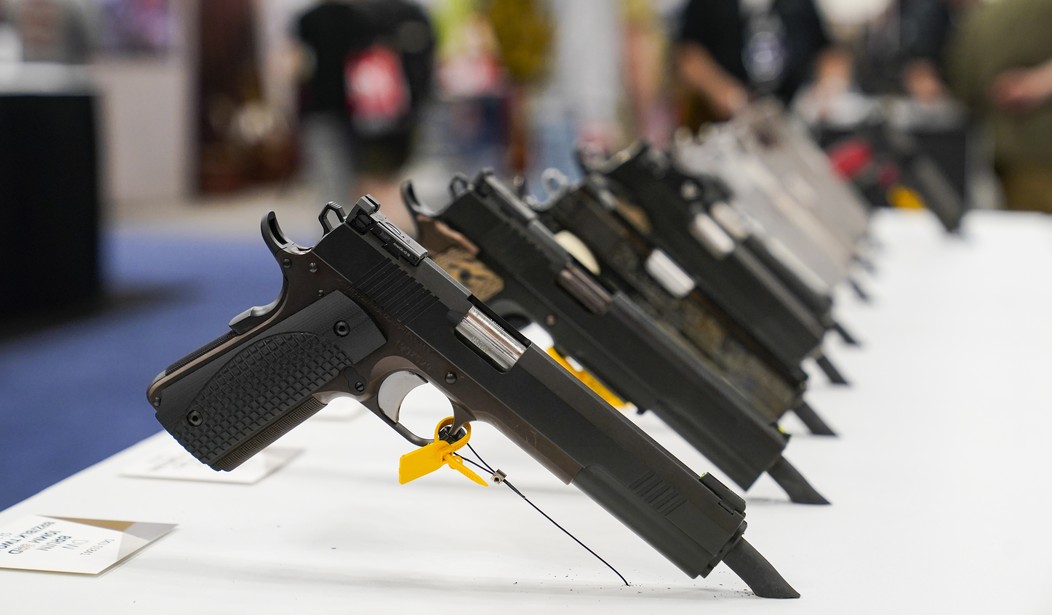In the wake of Parkland, Florida instituted age limits for the purchase of long guns. Suddenly, legal adults under the age of 21 were prohibited from buying firearms. They could still own them--a fact which many try to use to justify the restrictions as something other than an infringement on the Second Amendment--but they couldn't buy them for themselves.
I'm sorry, but if your right is contingent on the actions of another, it's not a right.
There's been a lot of fighting over this law, too, as well as the federal prohibition on handgun sales to adults under 21. Now, the New York Times is talking about how the right is divided on the issue, but before we get to the story itself, let's talk about the headline for a moment.
See, the story is behind a paywall, which means a lot of people aren't even going to see it, just the headline, which reads, "A Split on the Right Over Whether Teenagers Can Have Guns."
Teenagers.
A subheadline reads, "Conservative judges have come to opposite conclusions on what the Second Amendment has to say about limiting the gun rights of those under 21," which is a bit better, but it fails to note that we're only talking about guns for adults here.
The implication many may take here is that we're talking about 14-year-olds going in and buying guns, which isn't remotely on the table in any discussion I've seen anywhere. Even the most ardent gun rights advocates aren't going to push for something like that, but the anti-gunners legitimately think that's the discussion.
The Times failed to account for that and pretend we're just talking about "teenagers," probably on purpose, and dismissing that 20-year-olds are impacted by these restrictions and aren't teens by any metric.
Now, for the story itself.
The next big Second Amendment case may concern teenagers. Appeals courts are split on whether the government may restrict 18- to 20-year-olds from buying or carrying guns, and the Supreme Court will consider next week whether to hear one of those cases.
You might expect the differing views on the lower courts to divide along predictable lines, with judges appointed by Republicans on one side and those appointed by Democrats on the other. But this is an issue that has created a rift among conservative judges committed to unearthing the original meaning of the Constitution.
Last month, for instance, Judge William H. Pryor Jr. wrote the majority opinion for the U.S. Court of Appeals for the 11th Circuit, in Atlanta, in an 8-to-4 decision upholding a Florida law that prohibits the sale of firearms to people under 21.
No one doubts that Judge Pryor is a conservative. He was on President Trump’s short list in 2017 to fill the vacancy created by the death of Justice Antonin Scalia. The conventional wisdom was that Judge Pryor would face a tough confirmation battle — because he was too far to the right.
“Pryor has done more for the cause than anyone else in the country,” a White House official said at the time. “But the politics are really tough.”
Judge Pryor’s supporters said he would not waver or evolve. “He has a real titanium spine in terms of doing the right thing,” an official of the Heritage Foundation, the conservative group, said of the judge in 2017.
...“First, minors generally could not purchase firearms because they lacked the judgment and discretion to enter contracts and to receive the wages of their labor,” Judge Pryor wrote. “Second, minors were subject to the power of their parents and depended on their parents’ consent to exercise rights and deal with others in society.”
The 26th Amendment lowered the voting age to 18 in 1971. But that modern move does not illuminate the Constitution’s original meaning, Judge Pryor wrote.
Judge Pryor, however, isn't the spokesperson for conservatives everywhere. Most of them look at this and aren't thrilled with where he landed on this one.
As more of a libertarian, I have a major problem with it, in part because Pryor is talking about minors here. He notes that they couldn't purchase firearms or enter into contracts and receive wages for their labor. That's all stuff that people can do at the age of 18 now; earlier in the case of wages.
So I find the argument itself incredibly problematic, especially as the Constitution doesn't establish an age of majority.
Most people on the political right aren't exactly thrilled with Pryor's arguments here.
And, to be honest, the Times and their framing of this isn't going to thrill anyone except for the anti-gunners who love to generate hysterics.








Join the conversation as a VIP Member